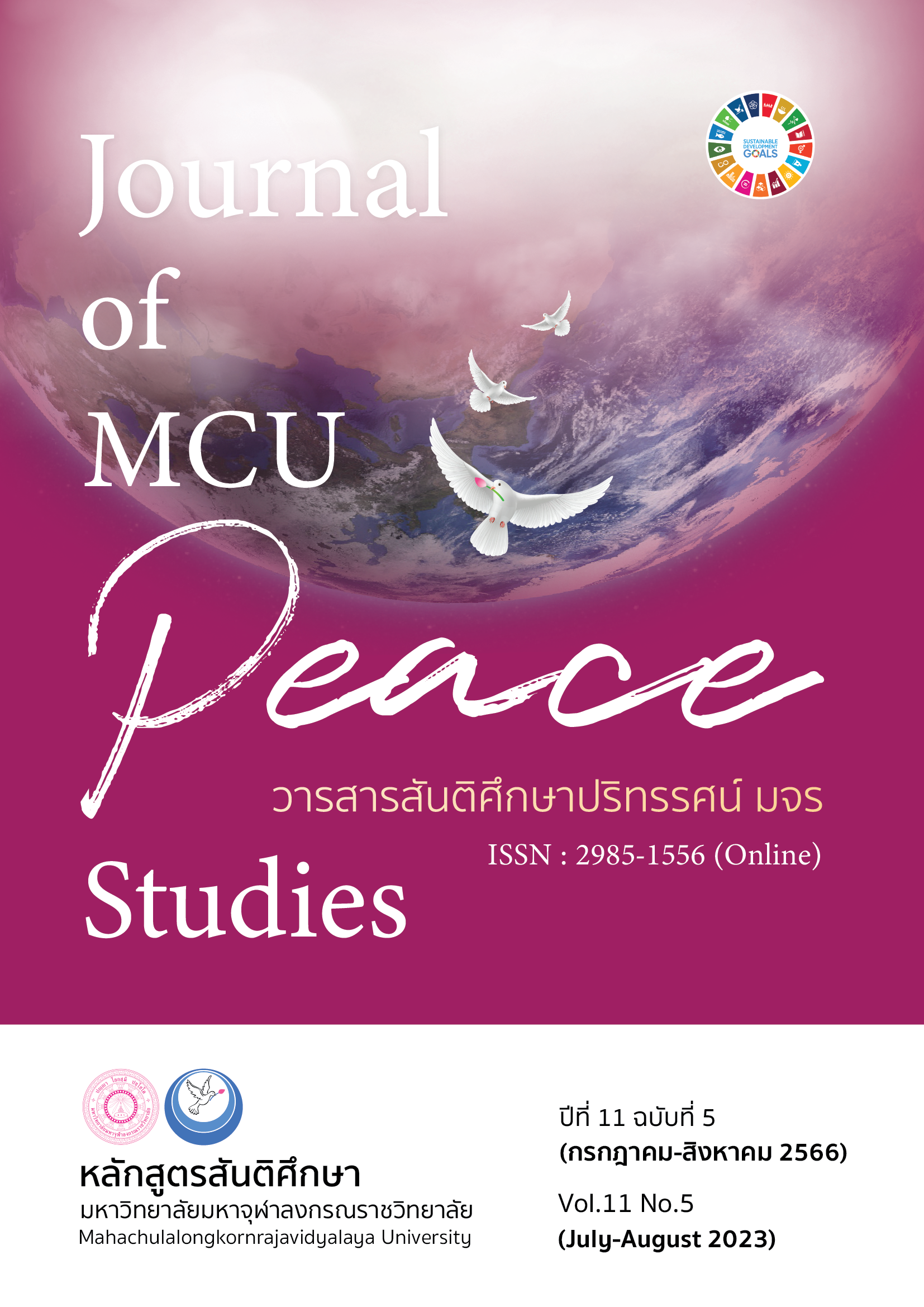ยุทธศาสตร์การบริหารสถานศึกษาอาชีวศึกษาเอกชนในยุคดิจิทัล
Main Article Content
บทคัดย่อ
บทความวิจัยครั้งนี้มีวัตถุประสงค์เพื่อ 1) ศึกษาสภาพการบริหารสถานศึกษาอาชีวศึกษาเอกชนในยุคดิจิทัล 2) สร้างยุทธศาสตร์การบริหารสถานศึกษาอาชีวศึกษาเอกชนในยุคดิจิทัล 3) ทดลองใช้ยุทธศาสตร์การบริหารสถานศึกษาอาชีวศึกษาเอกชนในยุคดิจิทัล 4) ประเมินยุทธศาสตร์การบริหารสถานศึกษาอาชีวศึกษาเอกชนในยุคดิจิทัล บทความวิจัยครั้งนี้เป็นการวิจัยแบบผสมผสาน กลุ่มตัวอย่างที่ใช้ในการศึกษาเป็น ผู้บริหารสถานศึกษาอาชีวศึกษาเอกชน จำนวน 123 คน ได้มาโดยใช้เกณฑ์ตาราง เครจซี่และมอร์แกน เครื่องมือที่ใช้ในการเก็บรวบรวมข้อมูลเป็นแบบสอบถาม แบบสัมภาษณ์แบบกึ่งมีโครงสร้าง แบบประเมินรูปแบบและคู่มือรูปแบบ สถิติที่ใช้ในการวิจัยได้แก่ ค่าเฉลี่ย ส่วนเบี่ยงเบนมาตรฐานและการวิเคราะห์เนื้อหา
ผลการวิจัยพบว่า 1. สภาพยุทธศาสตร์การบริหารสถานศึกษา โดยรวมอยู่ในปานกลาง ( =3.40, S.D.=0.67) 2. ผลการสร้างยุทธศาสตร์การบริหารสถานศึกษา ประกอบด้วย 5 ยุทธศาสตร์ ได้แก่ 1) การพลิกโฉมบุคลากร 2) การใช้สื่อ เทคโนโลยีใหม่ๆ อยู่เสมอ 3) การสร้างเครือข่ายความร่วมมือที่หลากหลาย 4) คุณภาพของผู้สำเร็จการศึกษา 5) จัดหาเทคโนโลยีพร้อมกับพัฒนาสภาพแวดล้อมภูมิทัศน์ อาคารสถานที่ที่เอื้อต่อการเรียนรู้ 3. ผลการทดลองใช้ยุทธศาสตร์การบริหารสถานศึกษาอาชีวศึกษาเอกชนในยุคดิจิทัล มีการปฏิบัติคิดเป็นร้อยละ 94.12 4. ผลการประเมินยุทธศาสตร์การบริหารสถานศึกษาอาชีวศึกษาเอกชนในยุคดิจิทัล พบว่าความเหมาะสม ความเป็นไปได้ และความเป็นประโยชน์โดยรวมรวมอยู่ในระดับมาก
Article Details

อนุญาตภายใต้เงื่อนไข Creative Commons Attribution-NonCommercial-NoDerivatives 4.0 International License.
ทัศนะและความคิดเห็นที่ปรากฏในบทความในวารสาร ถือเป็นความรับผิดชอบของผู้เขียนบทความนั้น และไม่ถือเป็นทัศนะและความรับผิดชอบของกองบรรณาธิการ ยินยอมว่าบทความเป็นลิขสิทธิ์ของวารสาร
เอกสารอ้างอิง
Chalamwong, Y., & Suebnusorn, W. (2019). Thai Vocational Education towards Nation Building If the Government Is “Sincere and Serious”. Retrieved May 19, 2019, from https://tdri.or.th/2019/02/vocational-education-4/
Chamchoi, S. (2018). School Management in Digital Era. Bangkok: Chulalongkorn University.
Gold, S. E. (1999). Community Organizing at a Neighborhood High School: Promises and Dilemmas in Building Parent - Educator Partnership and Collaborations. (Doctoral Dissertation). University of Pennsylvania. USA.
Intaramanee, S. (2019). Administration of Educational Institutions in the Digital Era. Academic Journal University Management and Eastern Technology, 16(1), 353-360.
Krongyuth, R., Pakotang, J., & Singphan, P. (2015). Effective Strategies for Administration of Basic Educational Institution. Journal of Graduate School Sakon Nakhon Rajabhat University, 12(59), 171-181.
Morada, W. (2010). State of Information Technology and Communication Use of Amnat Charoen Provincial Office of Non-Formal and Informal Education. (Master’s Thesis). Chaiyaphum Rajabhat University. Chaiyaphum.
Office of the Education Council. (2017). Thailand Education Scheme (2017-2036). Bangkok: Prikwarn Graphic.
Office of the Vocational Education Commission. (2017). Vocational Education Development Plan (2017-2036). Bangkok: Office of the Vocational Education Commission.
Phulsawasdi, W., Wetcha, P., Rattanachowong, P., & Tunkaew, S. (2018). Administration and Management of Technical to Enhance the Competitive Thailand’s Education 4.0 of CTECH Pacific Collage of Technology. VRU Research and Development Journal, 13(1), 8-16.
Sriraksa, P. (2018). Development of the Teacher Development System with the Flipped Classroom Using Google Apps for Education: A Case Study on Senangkhanikhom School, Amnat Charoen Province under the Secondary Education Service Area Office 29. (Research Report). Amnat Charoen: Senangkhanikhom School.


